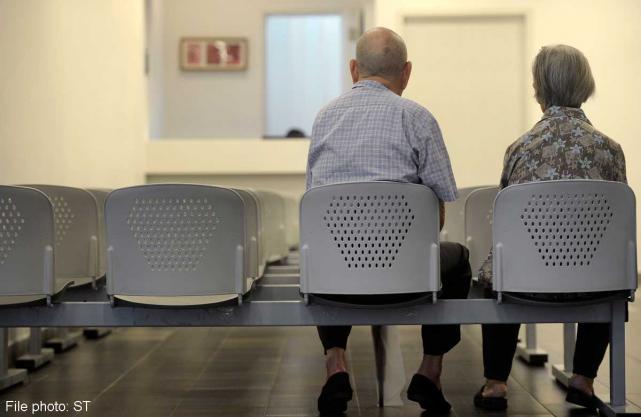I refer to the article “More help for low-income families living at Jalan Kayu” (Channel NewsAsia, Sep 10).
It states that “Low-income families with young children living in Jalan Kayu will now get an extra helping hand, with the launch of a one time top-up scheme to their Child Development Account (CDA).
The Jalan Kayu Child Development Account Top Up Scheme, is for young children below the age of six. The one time top up amount for each child is S$400, and the government will match the amount.
It is meant to help with the child’s educational and healthcare expenses at baby bonus approved institutions, childcare centres, kindergartens, special education schools, providers of early intervention programmes, providers of assistive technology devices, hospitals, clinics, pharmacies and optical shops.”
2,500 needy households get 300,000 free eggs
In this connection, I would like to refer to the article “2,500 needy households to get 300,000 free eggs over next 12 months” (Today, May 7).
According to the ComCare annual report for FY2015 – there were 39,548 unique households (86,759 unique beneficiaries) that received financial assistance.
Who to give the eggs to?
So, how do we decide which of the 39,548 households to give the eggs for only 2,500 needy households to?
Is it not indicative, arguably, of how inadequate our assistance programmes under ComCare are?
Another example is – according to the article “$1.5 million fund for low-income parents to buy milk powder for children” (Straits Times, Feb 11) – “All five Community Development Councils and NTUC FairPrice Foundation have banded together to fund a $1.5 million milk scheme to support parents who may have difficulty purchasing milk powder for their toddlers, especially amid a sluggish economy.
Vouchers for 7,500 low-income families
About 7,500 low-income families will be given vouchers – $200 for children from six months to three years old, and $100 for kids aged four to six – under the new milk fund to buy milk powder at FairPrice outlets and Warehouse Club.”
As to “We’ve set aside S$100,000 for this, so approximately 250 families should be able to benefit from this top-up scheme. This will be one time, but we hope that we can raise more funds in future so that these families who are lower-income families can benefit again in future”.
Families (in Jalan Kayu) with per capita household income of below S$950 each month are eligible for the scheme and can apply for it at Hwi Yoh Community Centre … Dr Intan added that there are about 13,500 households in Jalan Kayu” – does it mean that only about 1.9 per cent (250 divided by 13,500) of the households (with children below age six) may be eligible?
Household income so low?
In this connection, according to the Department of Statistics’ Household Income Trends 2016 – the average monthly household income from work per household member was only $543 for the bottom decile, and $1,064 for the 11th – 2oth decile, of employed households.
Since it includes the employer CPF contribution, the income excluding employer CPF contribution may be about $464 ($543 less 17 per cent) and $909 ($1,064 less 17 per cent), for the bottom and 11th – 20th deciles, respectively.
Excluding CPF – $371?
The take-home pay or disposable income may be about only $371 and $727 and after the maximum 20 per cent employee CPF contribution ($464, and $909 less 20 per cent), for the bottom and 11th – 20th deciles, respectively.
Household take-home pay $1,113?
So, can you imagine a family of three (couple with one child) trying to make ends meet with a monthly net take-home pay of only about $1,113 ($371 x 3 persons)?
Similarly, the computed net take-home household pay for the 11th-2oth and 21st-3oth percentiles were only about $2,181 and $3,015 respectively.
Got eggs, but no milk powder?
With each Community Development Council (CDC) or town council having their own piecemeal assistance programmes – we may have a situation whereby getting milk powder or eggs, and now CDA top-up, etc, may depend on where you live.
Is this ideal from the perspective of the needy, in a national welfare system?
Competing for limited charity dollars?
Also, the MPs who are asking for funds from corporations may be competing with the Voluntary Welfare Organisations (VWOs) and charities for limited charity dollars.
Leong Sze Hian
